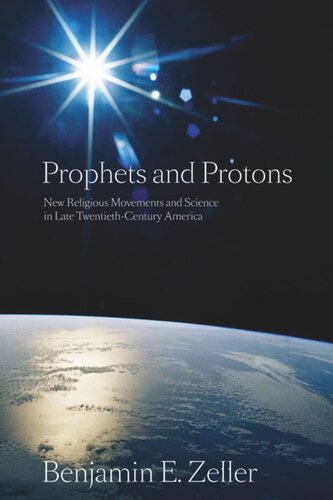

Most ebook files are in PDF format, so you can easily read them using various software such as Foxit Reader or directly on the Google Chrome browser.
Some ebook files are released by publishers in other formats such as .awz, .mobi, .epub, .fb2, etc. You may need to install specific software to read these formats on mobile/PC, such as Calibre.
Please read the tutorial at this link: https://ebookbell.com/faq
We offer FREE conversion to the popular formats you request; however, this may take some time. Therefore, right after payment, please email us, and we will try to provide the service as quickly as possible.
For some exceptional file formats or broken links (if any), please refrain from opening any disputes. Instead, email us first, and we will try to assist within a maximum of 6 hours.
EbookBell Team

5.0
70 reviewsBy the twentieth century, science had become so important that religious traditions had to respond to it. Emerging religions, still led by a living founder to guide them, responded with a clarity and focus that illuminates other larger, more established religions’ understandings of science. The Hare Krishnas, the Unification Church, and Heaven’s Gate each found distinct ways to incorporate major findings of modern American science, understanding it as central to their wider theological and social agendas. In tracing the development of these new religious movements’ viewpoints on science during each movement’s founding period, we can discern how their views on science were crafted over time. These NRMs shed light on how religious groups—new, old, alternative, or mainstream—could respond to the tremendous growth of power and prestige of science in late twentieth-century America.
In this engrossing book, Zeller carefully shows that religious groups had several methods of creatively responding to science, and that the often-assumed conflict-based model of “science vs. religion” must be replaced by a more nuanced understanding of how religions operate in our modern scientific world.